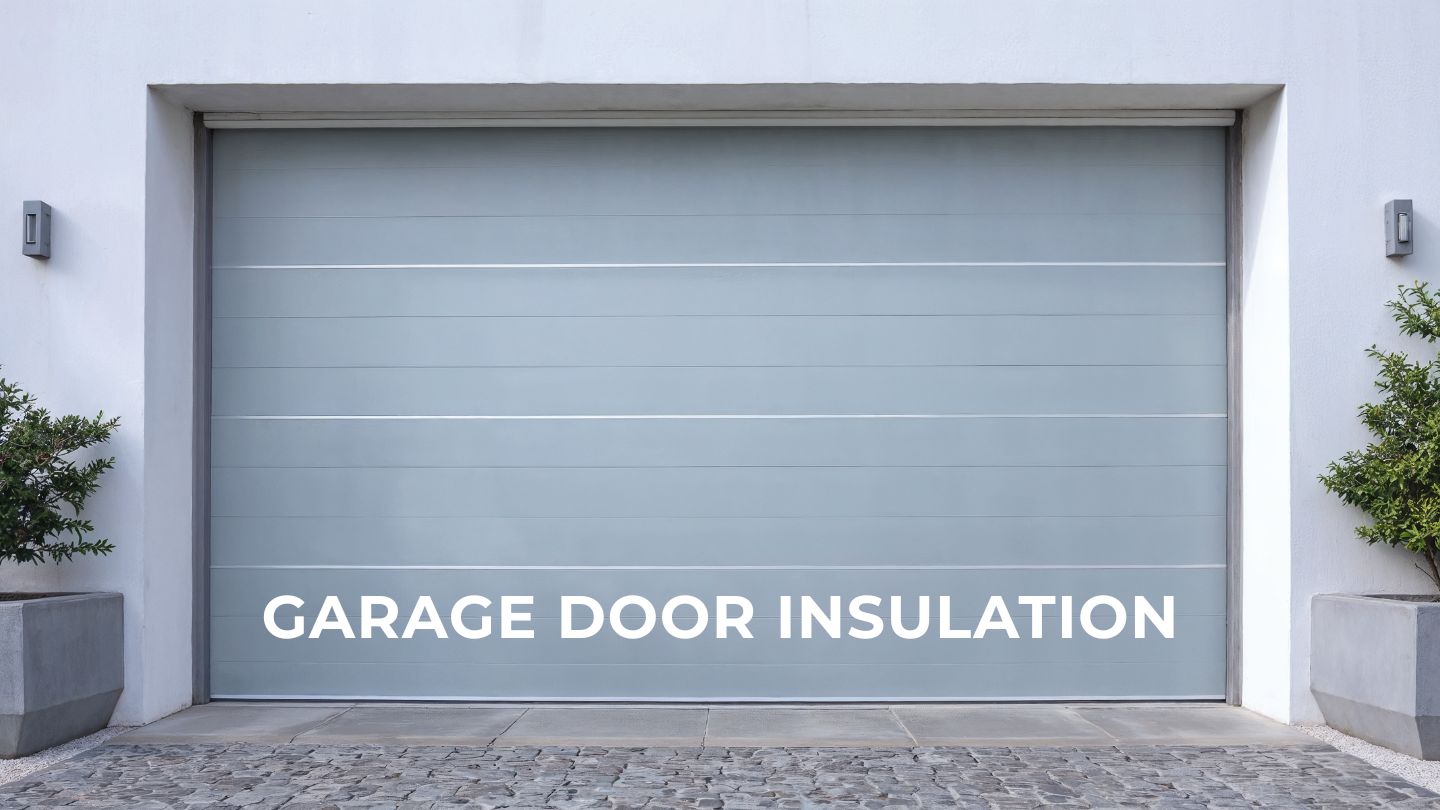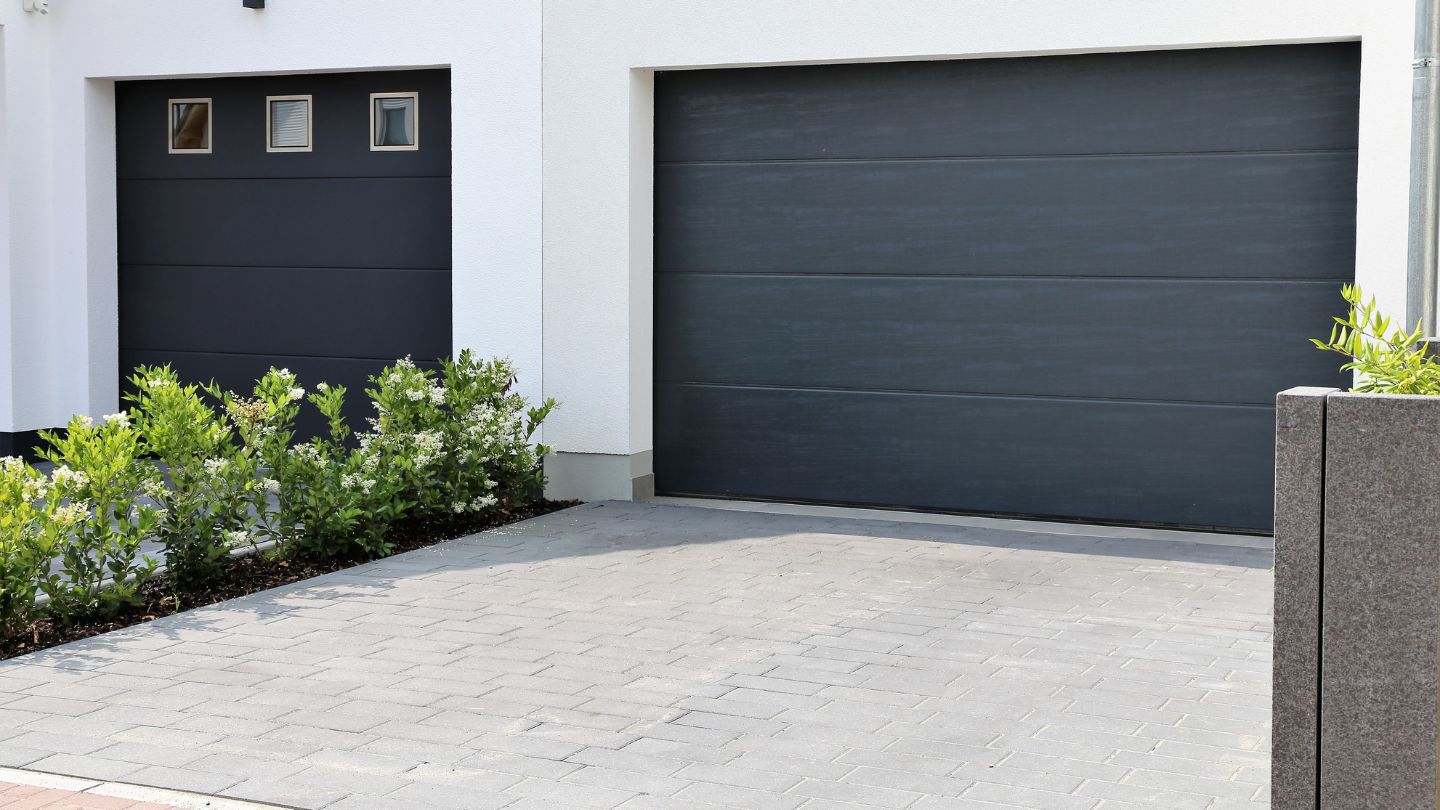
Garage door insulation can save you money, protect your belongings, and make your garage more comfortable. In this blog, we’ll cover garage door insulation, including benefits, materials, and tips for choosing the right option.
Garage door insulation is a cost-effective upgrade that brings a plethora of benefits to your home. It’s not just about saving money; it’s about improving overall home efficiency and making your garage a more comfortable and usable space. Whether you have an attached garage or a standalone structure, properly insulated garage doors help regulate the temperature inside, which can significantly affect your utility bills.
One of the standout advantages of garage door insulation is its ability to maintain a consistent internal temperature, protecting your belongings from extreme weather conditions. This is especially crucial in climates with freezing winters and hot summers, where temperature control can be challenging. Insulated garage doors trap air and reduce heat transfer, thus preventing energy loss and enhancing overall energy efficiency.
In addition to energy efficiency, insulated garage doors enhance comfort by reducing drafts and temperature fluctuations. This increased comfort also benefits adjacent living spaces, enhancing overall home livability. When upgrading or maintaining your system, it’s also helpful to consider what size garage door opener you need, as choosing the right opener size ensures smooth operation and optimal performance. Here are the specific benefits of garage door insulation. Here are the specific benefits of garage door insulation.
Insulating your garage door can lead to lower energy bills and reduced overall energy consumption. Insulation maintains a stable temperature, retaining heat in winter and blocking it out in summer, thereby significantly reducing energy costs. This not only results in savings but also reduces the strain on your HVAC system, enhancing its longevity.
Beyond energy efficiency, garage door insulation offers several other benefits:
These advantages make insulated garage doors a smart investment for any homeowner, providing a significant benefit.
When it comes to garage door insulation, not all materials are created equal. Common materials used for insulating garage doors include polystyrene and polyurethane. Polyurethane insulation offers superior insulating properties and durability compared to other materials, making it a popular choice among homeowners. It forms a tight thermal barrier and adds durability to the garage door.
Polystyrene insulates effectively. It achieves this by limiting heat transfer due to its low thermal conductivity and closed-cell structure. While it is effective, polyurethane is generally considered superior in terms of insulation effectiveness.
When choosing an insulation material, consider factors such as thermal resistance, material durability, and the specific needs of your garage space.

Garage door insulation reduces heat transfer, contributing to improved energy efficiency. Key points include:
An insulated garage door also helps maintain a stable, comfortable temperature, which improves the overall comfort of adjacent living spaces. This stability keeps the garage cool in the summer months, warmer in the winter, and quieter throughout the year.
Let’s explore how this impacts heating and cooling costs in greater detail.
Insulated garage doors can significantly lower heating and cooling expenses by maintaining a stable temperature inside the garage. This stability reduces heat loss, preventing your heater from overworking and lowering overall energy expenses. By reducing heat transfer and lowering the strain on your HVAC system, a poorly insulated garage door enhances overall energy efficiency.
Moreover, insulation helps protect stored items from cold temperatures, enhancing the usability of the garage space. Insulated garage doors maintain a stable environment inside the garage, which is essential for protecting vehicles from temperature fluctuations.
Installing insulated garage doors not only aids in energy savings but also ensures a more comfortable and usable insulated garage space.
Having an insulated garage door leads to significant savings on heating and cooling bills over time. Benefits of insulating garage doors include:
A consistent garage temperature enhances home comfort by minimizing drafts and temperature fluctuations. Insulated garage doors help in temperature control by minimizing heat transfer, keeping the garage warmer in winter and cooler in summer. This not only benefits the garage but also adjacent living spaces, making your home a more comfortable place to live.
Insulated garage doors offer several benefits:
Insulated garage doors significantly reduce noise from outside, creating a quieter and more peaceful home environment. This noise reduction makes the garage more suitable for focus-driven activities, thanks to its sound-dampening properties and effective noise control.
The effectiveness of garage door insulation in muffling sound demonstrates how it adds value to your home by maintaining a peaceful environment. Whether you’re working on a project in the garage or simply trying to enjoy some quiet time, the noise reduction benefits are substantial. Additionally, exploring ways to weatherproof a garage door can further enhance insulation performance, minimize drafts, and maintain year-round comfort inside your garage.
Insulated garage doors enhance the practicality of the space, making it ideal for storage, hobbies, workshops, or family activities. A well-insulated garage door facilitates a wider range of activities, making the garage a versatile space for families. The increased thickness also creates extra storage space, adding convenience for homeowners.
Whether you need a space for your DIY projects or an extra room for storage, an insulated garage provides the flexibility to meet your needs. It enhances the usability of the garage space, making it a valuable extension of your home.

Choosing the right insulated garage door requires considering several factors. Typically, these doors consist of two panels or a hollow frame filled with high-quality insulation materials and are recommended when insulation benefits are necessary. Foam board panels, reflective foil, and fiberglass inserts are popular options for insulation. These materials are commonly used for their insulating properties and can complement other home features, such as entry and patio doors, to enhance overall energy efficiency and comfort.
Consider factors such as the climate in your area and the specific needs of your garage space. When purchasing a garage door, consider:
For detached garages, mild climates, or infrequent use, insulated garage doors may not be essential.
R-value measures the ability to block cold or hot air, crucial for effective insulation. Regarding garage doors:
Less frequent opening of the garage door helps maintain the high effectiveness of insulation benefits. Insulation thickness contributes to R-value; however, a thinner door insulated with polyurethane may outperform a thicker door with less effective material.
Higher r values are associated with better insulation power and can also lead to improved sound transmission class (STC) ratings.
Composite garage doors are made from cellulose fibers combined with resins for durability and insulation. Steel garage doors typically have R-values that range from 8 to 14, indicating good insulation properties. Foam insulation is a common option for energy efficiency in metal garage doors.
Wooden garage doors offer a wide selection of styles and customization options, making them aesthetically pleasing. Composite doors typically include a foam core for additional stiffness and insulation.
Professional installation ensures optimal performance and longevity of garage door insulation. While DIY installation may save on labor costs, improper fitting can affect insulation efficiency. A skilled and prepared homeowner can undertake garage door insulation as a DIY project.
Homeowners should consider the pros and cons of each installation approach before deciding. Let’s explore the advantages of professional installation and some DIY tips for those who choose to go that route.
Professional installation is recommended for optimal results, ensuring proper setup, alignment, and activation of safety features. Professional installation guarantees that the insulation is fitted correctly, maximizing its efficiency. To achieve these benefits, it is essential to install the system properly and understand what to expect during the garage door installation process, as this helps homeowners prepare for each step and ensures a smooth, efficient installation experience.
Opting for professional installation ensures top performance of garage door insulation, leading to long-term energy savings and the best option for enhanced comfort.
For skilled and prepared homeowners, insulating a garage door can be a rewarding DIY project. Basic tools and skills suffice for installation; having the necessary materials and following proper procedures ensures the best results.
DIY installation can save labor costs, but correct fitting is crucial to avoid compromising insulation efficiency. Preparation and attention to detail are key for those opting to tackle this project themselves.
Regular maintenance prevents major issues and enhances garage door longevity. Thicker panels resist dents, scratches, and withstand weather better. Insulated panels withstand external forces better due to their thickness and the materials used, which resist extreme temperatures. Incorporating consistent upkeep and learning how to make your garage doors more energy-efficient can further improve insulation performance, reduce energy costs, and extend the lifespan of your garage door system.
Key points about garage door insulation:
To maintain door panels and ensure smooth operation:
Regular maintenance keeps insulated garage doors functional and efficient, prolonging their lifespan. Simple steps like these help maintain efficiency and durability.
Certain situations require professional help. Consult local experts if you notice significant damage, alignment issues, or poor insulation seal performance. Professional assistance addresses major problems correctly, ensuring the efficiency and longevity of your insulated garage door.
In summary, investing in proper garage door insulation is a wise move: it improves comfort in your workspace or home garage, can reduce energy costs by preventing heat loss or gain, and even helps protect the door mechanism from temperature damage. Whether your garage is used for a workshop, parking, or storage, insulation contributes to better performance, quieter operation, and longer system life.
When you’re ready to upgrade your garage space, the team at Dayton Door Sales is here to help with quality service for garage doors in Dayton. We also provide garage door service in Tipp City and Bellbrook. Lean on us for expert guidance, from choosing the right insulation solution to selecting a door system that complements your home, so you can enjoy the benefits with confidence.
Polystyrene and polyurethane are commonly used for garage door insulation, with polyurethane providing superior insulating properties and durability.
Insulating your garage door can significantly lower energy bills by reducing heat transfer and energy consumption. In fact, polyurethane insulation can lead to energy savings of up to 40%.
R-value measures the effectiveness of insulation in resisting heat flow, with higher values indicating better performance. This is crucial for maintaining energy efficiency and comfort in buildings.
Opting for professional installation is advisable for optimal performance and longevity, as DIY may result in improper fitting despite saving on labor costs. Consider your comfort and expertise before making a decision.